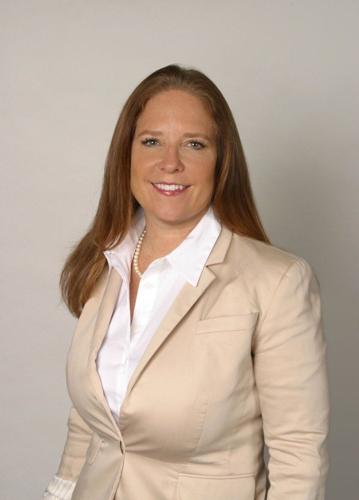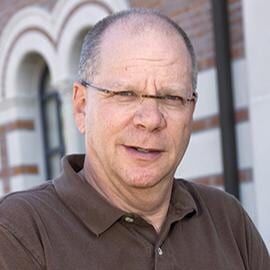
Staci Biggar is trying to make herself well-known among Harris County voters, who will soon decide how she spends the next four years of her career. The Heights-area resident wants members of the public to know about her experience as a criminal defense attorney, about her legal philosophies and about how she would conduct herself if elected judge of Harris County Criminal Court at Law No. 3.
The endeavor has proven to be a steep climb for Biggar, one of three candidates on the ballot for the Democratic primary election along with Porscha Natasha Brown and Lorenzo Williams. Their race is not as high-profile as those for county judge or state representative or governor, so Biggar said she has found it difficult to call attention to it, even at events designed to introduce political candidates to voters.
“They want to hear about the statewide races and state rep races. They don’t really highlight the judicial races too much,” she said. “We may go places and they let us introduce ourselves, but they don’t really talk and ask us questions. It’s basically 60 seconds of time, just because we’re lower down the ballot.
“The lower down the ballots, the less attention you get,” Biggar added, “even though we have the most impact on people’s daily lives.”
That sentiment was echoed by Leo Farias II, a Heights-based attorney who is competing for a judicial seat in the Republican primary, as well as by Bob Stein, a political science professor at Rice University. Farias said family court judges, in seats like the one he’s running for in Texas’ 257th Judicial District, have the power to seize assets and property along with determining when and how often someone can see their children.
Judges in criminal district courts decide bond amounts and whether an alleged offender can be released from jail on bond, which has become a hot-button issue in Houston amidst a surge in violent crime.
Even still, Stein said the general public and even engaged politics experts like himself know little about the judicial candidates on the ballots for the March 1 primaries, partly because they don’t get as much recognition in the news media and within the two prominent political parties, and also because of the sheer number of races in the 2022 election cycle.
Every voter in Harris County will have 86 races on his or her ballot, both for the primaries and the general election in November, making it the longest ballot in the United States, according to Stein. Seventy-eight of those are for judicial seats at either the state or county level, with many of the primary races involving one, uncontested candidate, which further contributes to what Stein called a “dearth” of information about them in the run-up to the election.
“I’ve spent the better part of 50 of my 72 years studying sub-national, state and local politics, and I can tell you the names of no more than five or six candidates on the ballot for what you would call judicial offices,” Stein said. “Is it possible that anybody could possibly make intelligent and informed decisions about judicial candidates? I don’t think even members of the bar could honestly tell you they can distinguish the candidates – even those that are candidates.”

Bob Stein
Judges often are elected based on endorsements or party affiliations, Stein said, even after Texas eliminated straight-ticket voting after the 2018 election. And even though early voting has already begun for the primaries – it will continue through Feb. 25 – area voters still have time to learn more about all the judicial candidates before casting their ballots.
Ashleigh Rickertsen, president of the Greater Heights Democratic Club, said her organization has made endorsements for most of the races in the Democratic primary, including in the judicial elections. Those can be found atwww.greaterheightsdemocrats.com.
The League of Women Voters of Houston provides nonpartisan resources for voting in the March 1 primaries athttps://lwvhouston.org/voters-guide/, with information about candidates from both political parties as well as endorsements.
The Houston Bar Association (HBA) conducts annual surveys among member attorneys that provide insight into judges in the region as well as judicial candidates. During non-election years, sitting judges are evaluated by attorneys who work with them on things such as ethics and professionalism. During election years, the HBA conducts the Judicial Preference Poll, in which member attorneys indicate their candidate preferences in contested races.
Those polls are typically released during the month preceding a general election, according to the HBA. More information as well as past judicial polls can be found atwww.hba.org.
Farias, the Heights attorney running for a family district court seat, said reading Google reviews about candidates also can be helpful when trying to discern their qualifications and temperament on the bench.
“The quality of the judiciary is crucial not only to our legal community, but to the greater Houston community at large,” HBA president Jennifer A. Hasley said in a statement provided to The Leader. “Our judges are responsible for overseeing hundreds of legal court proceedings that have a real impact on Houstonians’ lives. The HBA believes an informed electorate is vital to the administration of justice.”
What about the role of party politics in judicial elections, since every judicial candidate on this year’s ballot is running as either a Democrat or Republican? Should judicial races be politicized, since the job of a judge is to listen to the facts of a case and make a ruling based on laws that already have been written?
Stein said it would be naïve to think judges make rulings without being swayed by personal or party politics. He also said there are nonpartisan judicial elections in roughly half of the states in the U.S.

Todd Frankfort
Former Heights resident Todd Frankfort, a longtime practitioner of family law who is competing in the Republican primary for the 308th Judicial District seat, said candidates benefit from party alignment because that’s how voters can distinguish them when they might not otherwise know much about the candidates.
Biggar and Farias both said they think judicial races should be nonpartisan.
“In my opinion, in an ideal world, who sits on our benches would not be partisan at all,” Rickertsen said. “But if they’re not elected, then they’re appointed, and who appoints them is political. And we don’t live in a place right now where we can fully separate our judicial benches from the politics that engulf all of us. Ideally, sure, but we’re not there.”
Frankfort, a first-time political candidate like Biggar and Farias, who is competing against Michael Patrick Delaney in his primary race, said getting his name and stances in front of voters has been “exhausting.” But he said he feels like he’s done that as well as he can, thanks to advice he was given by others who have campaigned in judicial races.
His strategy has been to attend as many events as possible and interact with as many Republican voters as possible – in all corners of the county. Biggar is trying to do much the same with Democratic voters.
“You hope they look at experience and that they don’t just take one endorsement as the end all, be all, because it’s not,” Biggar said. “You hope that they dive a little bit deeper and try to accurately figure out who is best suited for the bench.”
To get stories like this delivered to your email inbox, sign up here for The Leader Daily Newsletter.








(0) comments
Welcome to the discussion.
Log In
Keep it Clean. Please avoid obscene, vulgar, lewd, racist or sexually-oriented language.
PLEASE TURN OFF YOUR CAPS LOCK.
Don't Threaten. Threats of harming another person will not be tolerated.
Be Truthful. Don't knowingly lie about anyone or anything.
Be Nice. No racism, sexism or any sort of -ism that is degrading to another person.
Be Proactive. Use the 'Report' link on each comment to let us know of abusive posts.
Share with Us. We'd love to hear eyewitness accounts, the history behind an article.